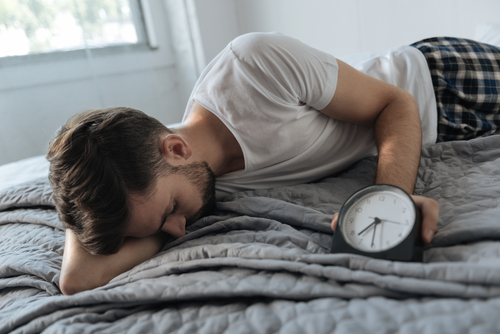Fatigue is a common symptom for patients with chronic diseases such as adrenoleukodystrophy (ALD). Fatigue can be defined as extended periods of exhaustion leading to a lack of energy and motivation. Here is information about how ALD can lead to fatigue and some tips to help reduce it.
Understand how ALD can lead to fatigue
ALD is caused by genetic defects in the ABCD1 gene, which contains the instructions necessary for cells to produce the adrenoleukodystrophy protein (ALDP). This protein helps break down very-long-chain fatty acids (VLCFAs). The genetic defects lead to a reduction in ALDP, resulting in a toxic buildup of VLCFAs in different tissues and organs.
The buildup of VLCFAs has two primary effects on the body, including damage to the adrenal glands — leading to adrenal insufficiency — and damage to the nervous system, leading to a range of symptoms from peripheral neuropathy (burning and tingling sensations in the hands and feet) to seizures.
Adrenal insufficiency may be fairly common and undiagnosed in ALD patients. A study of 49 boys with asymptomatic ALD found that 80% of them had previously unreported reductions in adrenal function, and 86% progressed to adrenal insufficiency by the end of the study.
Adrenal insufficiency is the result of the adrenal glands not producing enough of the stress hormone cortisol. Low levels of cortisol commonly lead to symptoms such as weight loss, weakness, abdominal pain, and fatigue.
The many neurological symptoms of ALD can also lead to fatigue. Nervous system issues, such as peripheral neuropathy, muscle spasms, seizures, and bladder and bowel problems, can lead to problems getting enough restful sleep and, therefore, result in fatigue.
Manage fatigue with lifestyle
Several changes in lifestyle can help fight fatigue.
Many people who feel fatigued are mildly dehydrated so if you have ALD, ensure that you are drinking enough water throughout the day. Changes in diet, such as increasing the number of fruits and vegetables, may also help reduce fatigue. Avoiding caffeine, sugar, and large meals before bedtime may also help with sleep.
Even though it might seem counterproductive, low-intensity exercise can help reduce fatigue and improve sleep. Be sure you exercise safely if you experience weakness and coordination problems.
Receiving a diagnosis of a chronic progressive disorder like ALD can be stressful and lead to anxiety, which can play a role in fatigue. Relaxation techniques, meditation, and cognitive-behavioral therapy can all help manage stress levels.
Getting sufficient amounts of sleep is important. The National Sleep Foundation recommends seven to nine hours of sleep per night for adults and between nine and 14 hours for children, depending on their age. Limiting the use of electronics before bed can help you or your child fall asleep better and increase the restfulness of sleep.
Seek expert advice for treatments
Consult with your physician if you or your child is experiencing fatigue. They can help determine the possible causes and recommend solutions. Keep in mind that some medications could lead to drowsiness or interfere with sleep. This could, in turn, lead to fatigue.
Your doctor may prescribe some treatments, depending on the cause of the fatigue. If adrenal insufficiency causes fatigue, corticosteroid replacement therapy can bring hormone levels back to normal and increase energy levels. In addition, certain medications can alleviate neurological symptoms that may interfere with sleep.
Last updated: Nov. 25, 2020
***
Adrenoleukodystrophy News is strictly a news and information website about the disease. It does not provide medical advice, diagnosis or treatment. This content is not intended to be a substitute for professional medical advice, diagnosis, or treatment. Always seek the advice of your physician or other qualified health provider with any questions you may have regarding a medical condition. Never disregard professional medical advice or delay in seeking it because of something you have read on this website.


